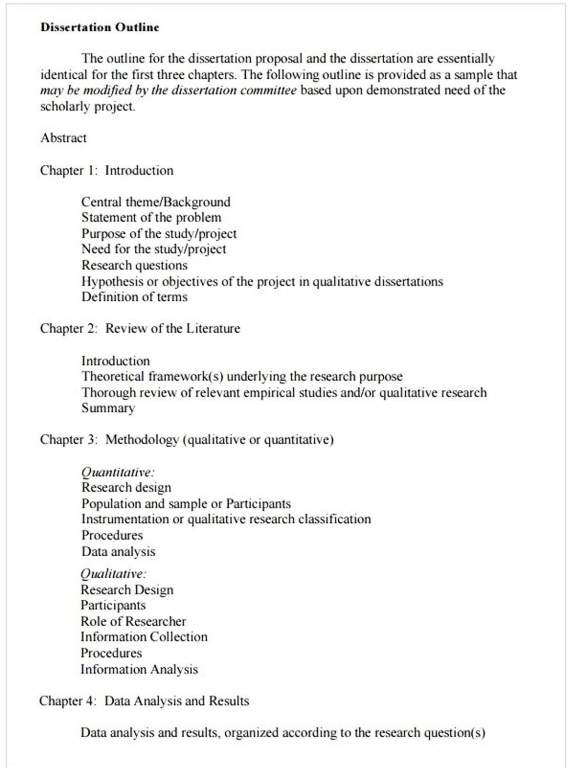
Thinking of a thesis for PhD can often feel like the most challenging part of your academic journey. It requires a blend of creativity, critical thinking, and planning to generate an idea that not only aligns with your interests but also fills a gap in existing research. With the UK PhD pass rate at 80.5%, as reported by Discover PhDs, the ability to conceptualise a strong, original thesis idea plays a pivotal role in the overall success of your doctoral research.
The process of developing a PhD thesis begins long before you start writing; it starts with thinking critically about your field of study, identifying areas for exploration, and considering how your work will contribute to your academic community.
In this article, we’ve compiled 15 important tips to help you think innovatively for your thesis for your doctorate. Let’s get started!
15 Effective Tips to Think of Your Thesis for PhD
Thinking of a PhD thesis requires more than just choosing a topic; it’s about finding the right approach to your research. The tips provided will help you think through your ideas, refine your focus, and connect your academic interests with potential areas for research. If you ever find yourself stuck during this process, getting PhD dissertation writing help can be a valuable option to get expert guidance.
However, by following these practical steps, you’ll be able to narrow down your options and develop a clear direction for your doctoral thesis.
1. Understand Your Field of Study
The very first thing that you need to do when thinking about your PhD thesis is to understand the nature of the studies. The field of study means that you have to choose a thesis topic in a way that benefits a particular course of study.
Here is what you can do in order to understand your field effectively:
- Take your time to gauge your passions and interests.
- Analyse where the research gap lies in your field.
- Know the requirements of all the papers that have to be written in your area of research.
- Explore the future research recommendations of journals to get an idea about the work.
- You can also analyse the latest publications in the research magazines to learn the current trends in your field of study.
The thesis topic you choose should have clear objectives and should be completed within the given timeframe and all the available sources. The availability of the resources confirms that you will be able to finish the project on time. If you are struggling to get the right idea, a professional PhD thesis writing service in the UK can assist you with picking the best research topic and even support you in writing a well-written dissertation.
2. Identify Your Research Interests
You should also identify the research interests when choosing a PhD topic by reading the published journals. The research recommendations can let you identify potential topics. Ideally, you should think about the subjects that you particularly enjoy studying
Here is a guide on how you can identify the potential interests for your research work:
- Engage with the professors and researchers to get an idea about feasible research ideas
- See what resources are available online from your university
- Think about the potential of your research work and relate it to the broader academic contexts
- See if your research topic aligns with the long-term career goals you have in mind
A determination of these factors will help you see if the topic you are considering goes well with your interests or not. You can also look for the significance of the research you are conducting.
3. Focus on the Feasibility and Originality of the Research Topic
When thinking about the thesis for PhD, you can also go for finding the research gap in your field of study. The originality and feasibility of your research topic can make you contribute new ideas to the research field. You can also ensure originality in the papers you craft by avoiding copying the research title.
You can introduce new ways of finding solutions to the existing problems in your research areas. To ensure that the research topic you have chosen is feasible and original enough, you should add your own perspective to the research. Talking to a supervisor for their advice can also help.
4. Understand the Requirements
To get a successful topic for a thesis for a PhD, you must also understand the overall requirements. Keep in mind that these requirements can vary between institutions and disciplines. The thesis you are working on should contribute meaningfully to the research field.
Hence, you must be aware of the requirements of the research work that you have to conduct. Here are the elements that you must know:
- The word limit
- The number of chapters
- Deadline for submission
- The formatting requirements
Once you have taken note of all these things, it’s time to move on with the research work. You should also be familiar with the submission formalities, the depth of required analysis and other important guidelines by the university.
5. Analyse the Topic
Choosing the right topic for research is important, and you should take this decision with utmost care. The topic that you have in your head should be feasible enough to be researched. It should not be too broad or too narrow. Before picking the topic, make sure that the subject is interesting to you, that it fills the research gap and that you consider it feasible for research purposes.
Also, you should hold regular meetings with the supervisor to learn all about the research requirements. When picking the topic, keep all the guidelines for the refinement of the topic in your mind. It will also help you formulate precise research questions.
6. Conduct In-depth Research
Sound and strong research can make the backbone of your thesis for a PhD. You should be involved in considering the ways to collect systematic data, conduct a comprehensive review of the literature, and perform a detailed analysis of the data before picking the topic. Choosing the right research methods is important; keeping a record of all information is equally important.
When you have documented all your research, your writing process will be facilitated to a greater extent in a long way. Ensure to keep a record of all the resources you consulted while deriving sources for research. You should review all the relevant journals and books to find a good and appropriate topic for a doctoral thesis.
7. Discuss With Your Supervisor
You should not forget that you can always get help with the overall thesis whenever you need it. The supervisor will be right there, and you should not hesitate to ask for assistance from the supervisors, advisors, or other committee members. When you communicate with the supervisor regularly, you will be able to solve quite a lot of issues with your thesis.
Furthermore, these people can save you from a lot of heartache during the research and writing process of your PhD thesis. Know that all of it does not have to be a solo exercise. You can get help at any point you feel stuck and need assistance. That is why you should keep scheduling regular meetings with them to stay on track.
8. Review the Existing Literature Review
Before starting the research work, you have to review the literature on your topic of research. You should keenly observe all the research work that has been done in the field of study. The literature review chapter will have a lot of references which must be mentioned accurately in the bibliography of the thesis later. Hence, you should keep track of all the sources.
The five steps of reviewing a literature review section, as mentioned by the Kingston ISC, are the following:
- Search for the relevant literature.
- Critically analyse all your sources.
- Determine the debates, themes and gaps in the research.
- Outline the thesis structure.
- Note the points to write in the literature review section.
9. Think about the Research Methods
In the methodology part of your PhD thesis, you will be expected to elaborate on the methods you used for research. The reliability of your methodology is the sign that the results you have gotten can be trusted.
Hence, you have to choose a topic for a doctoral thesis which can be investigated through different research methods. As per Indeed, here are the top 08 steps of mental formulation of the methodology chapter for the thesis:
- See if you can restate the research problem or the thesis statement.
- Explain the research methods that you have chosen.
- If you have used an uncommon dissertation methodology structure, you should be able to explain it.
- Can you describe the ways used for all the data collection?
- Justify the research method that you have picked.
- See if you can face any obstacles; if yes, then attempt to describe them in detail.
- Cite all sources you utilised to pick the methodology for research.
10. Know What Kind of Results You Can Get
After you have given the readers a complete review of the literature and research methods you used, it will be time to think about the findings. Think about what kind of results you can get after using the techniques you have finalised.
- Contemplate if those results will be able to contribute meaningfully to your research field or not.
- Think about whether the results will be qualitative or not.
- See if the results will be meaningful for the research field or not.
When you mention the results, connect them with the thesis statement and initial aims and objectives of your research work. It will let the readers see that there is a correlation between both sections and that you have successfully achieved all the goals of your research work.
11. Keep Taking Breaks
Taking regular breaks not only gives you a productivity boost but also makes the students feel motivated to do their work regularly. According to a report by Forbes, 90% of Americans feel refreshed and relaxed after taking breaks. So, whenever you feel like quitting all the research work, you should take a break to help you feel fresh and energised.
The students working on picking a thesis for PhD can try the Pomodoro technique, in which they work for a dedicated session of 20-25 minutes and then take a break for a small time. These examples help you stay focused and let you become even more productive than before. Resting for a while is always better than trying to give up on the research or procrastinate.
12. Stay Away from Distractions
When picking a thesis for PhD, you should stay away from all kinds of distractions that may divert your focus. Ideally, choose the hours when you stay the most focused and feel the most productive. Some students can brainstorm ideas in the morning time while others remain productive at the time of night.
Some things to consider when you want to stay away from the distractions are here:
- Switch off your cell phone when working on a thesis for a PhD.
- Don’t pick up your laptop to check the notifications from applications on your phone.
- Choose a quiet area of your room which is away from noise.
- Play some music if it makes you stay focussed.
- Make a tough schedule and stay disciplined per the strict routine.
- Stay away from the people who drain your energy.
Another thing to keep in your consideration is that you should resist perfectionism. Know that productivity and perfectionism are two separate things. To finish your thesis on time, you have to stay productive; you do not have to write papers which are perfect down to the least detail.
13. Think of Collaborative Research
If you plan to work on your thesis for PhD with other researchers, don’t forget to give due credit to the original researchers. If you had the leave to work in collaboration with other researchers, be sure to indicate what part of your thesis after the mutual collaboration of different researchers.
Collaborative research happens when the cause for a thesis for a PhD is greater and more than one person has to work on it. It involves people getting together and sharing their insights and skills to reach a positive outcome. Collaborative research has a higher chance of getting noticed by other people in your field; hence, you should pay due attention to the entire process.
14. Create an Outline
The best way to keep your entire work organised is to create an outline that has the PhD thesis structure approved by your university. By using an outline, you can get tremendous benefits and specify the direction in which your research work shall proceed. Ideally, the outline should include all the chapters that need to be included in your papers.
We have picked an example from the Template Net to show you how a thesis outline should ideally look like:

Keep in mind that you must know the specifications and requirements of your department before you start working on your papers. Using this, you will be able to organise all the information in the form of little snippets. All of it allows you to effectively plan your work and manage the time for finishing the thesis for your PhD. An outline can help you get a certain structure for your research.
15. Develop the Proposal
The last step of the process is to work on the development of a proposal which can act as the thesis roadmap and outline all the questions of your research. Mention the significance of your studies, write the methodology and add some details about the preliminary review of the literature. The supervisors must accept the proposal before you start working on it.
Crafting a good proposal is important because it can guide the trajectory of your research work and act as the reference point throughout your research. If the supervisor suggests some changes in your work, you should incorporate those changes and then send the papers for further review.
How Do I Choose My PhD Thesis?
When choosing a topic for a PhD thesis, consider your research gaps, interests, and career goals. Using the resources from the university, speaking with mentors and peers and checking for existing or opening projects is the way to go. You must also consider a topic that you are deeply passionate about.
Some key things to keep in mind when you are choosing a topic for the PhD thesis research are the following:
- Look for all the areas where the research work needs to be done.
- You should read widely to identify all the research gaps in the content.
- Choose a topic that is relevant to the future career that you have chosen.
- Discuss all the ideas with your peers and ask them for timely feedback.
- You can also consult a mentor for direction and advice. Ensure to check if there are any openings or existing projects.
Is 20,000 Words Enough for a PhD Thesis?
One of the most challenging aspects of crafting a PhD thesis is the super tough writing part. This leads to questions about the length of the thesis you are expected to write. According to Discover PhDs, the average length of a PhD thesis is between 80,000 to 100,000 words.
For further information, you can check the guidelines for the word limit set by the university you go to. In almost all cases, the limit refers to the maximum number of words that you have to add to your papers. Know that there are no restrictions on the minimum limit of words.
Can I Write My PhD Thesis in 2 Weeks?
As per a LinkedIn report, writing a PhD thesis in 2 weeks is an impossible task. However, with the right planning and strategies, you can achieve it. You have to keep in mind that you must have done the actual work, and all that will be left is the writing process. All that you have to do now is to remove all the distractions and sit down to work on your papers. Also, hiring experts from best-rated dissertation writing platforms can streamline your writing process, offering tools and guidance to stay on track.
If you are on the mission of writing your doctoral thesis in merely two weeks, you need to be strictly disciplined. Some tips to keep you steadfast in the process are the following:
- Get a clear understanding of the thesis requirements and expectations to make sure you have a focused approach towards writing and research.
- Make a detailed schedule and work plan, and break down the thesis into manageable portions with flexible deadlines.
- Use time management techniques and tools to prioritise your tasks and organise all the research material for easy use and access.
- Ensure to follow a robust revision and drafting process and add peer review to improve your thesis quality.
- You should also understand the submission process, including the defence and formatting preparation for the smooth completion of your work.
Why is it Important to Prepare for the Viva?
The last step before your graduation is the successful thesis defence. It is an oral exam in front of a panel of examiners where the researchers are expected to defend their thesis for PhD. The students should demonstrate their knowledge and let the examiners assess the quality of research and the contribution of their work towards the field.
Consider the following questions when preparing for the viva:
- You should see what kind of questions may be asked
- Practice answering different types of questions about your research
- Be prepared to discuss the weaknesses and strengths of your PhD thesis
- Be fully prepared to defend your thesis in front of a highly educated panel
If you are well-prepared for the viva voce, the graduation will not be delayed. Do not become too over-prepared for the session, and keep yourself confident enough to deal with all the challenges of the session. Dress for success, keep your nerves calm, and you will ace the rest.
Conclusion
In conclusion, thinking of a thesis for your PhD is an effective yet rewarding challenge that lays the foundation for your academic journey. By following these 15 valuable tips, you can refine your ideas, ensure originality, and select a research topic that resonates with both your interests and the current gaps in your field. Remember, the key to success is not just in choosing the right topic but also in approaching the research process with creativity, thoroughness, and a clear focus.
Don’t hesitate to seek guidance from mentors and experts, as their insights can help guide you toward a meaningful and achievable thesis. With patience, dedication, and the right strategy, you will be well on your way to crafting a PhD thesis that makes a significant contribution to your discipline.
Author Bio
Gracie Goddard is an experienced thesis writer and researcher with a strong background in guiding students through the complexities of PhD research. With years of experience in academic writing and thesis development, he helps aspiring PhD candidates navigate the process of choosing, researching, and writing their dissertations. Passionate about fostering academic success, Gracie offers expert advice on thesis planning, research strategies, and scholarly writing.
Read More: Must-Read Books for Achieving Financial Independence






